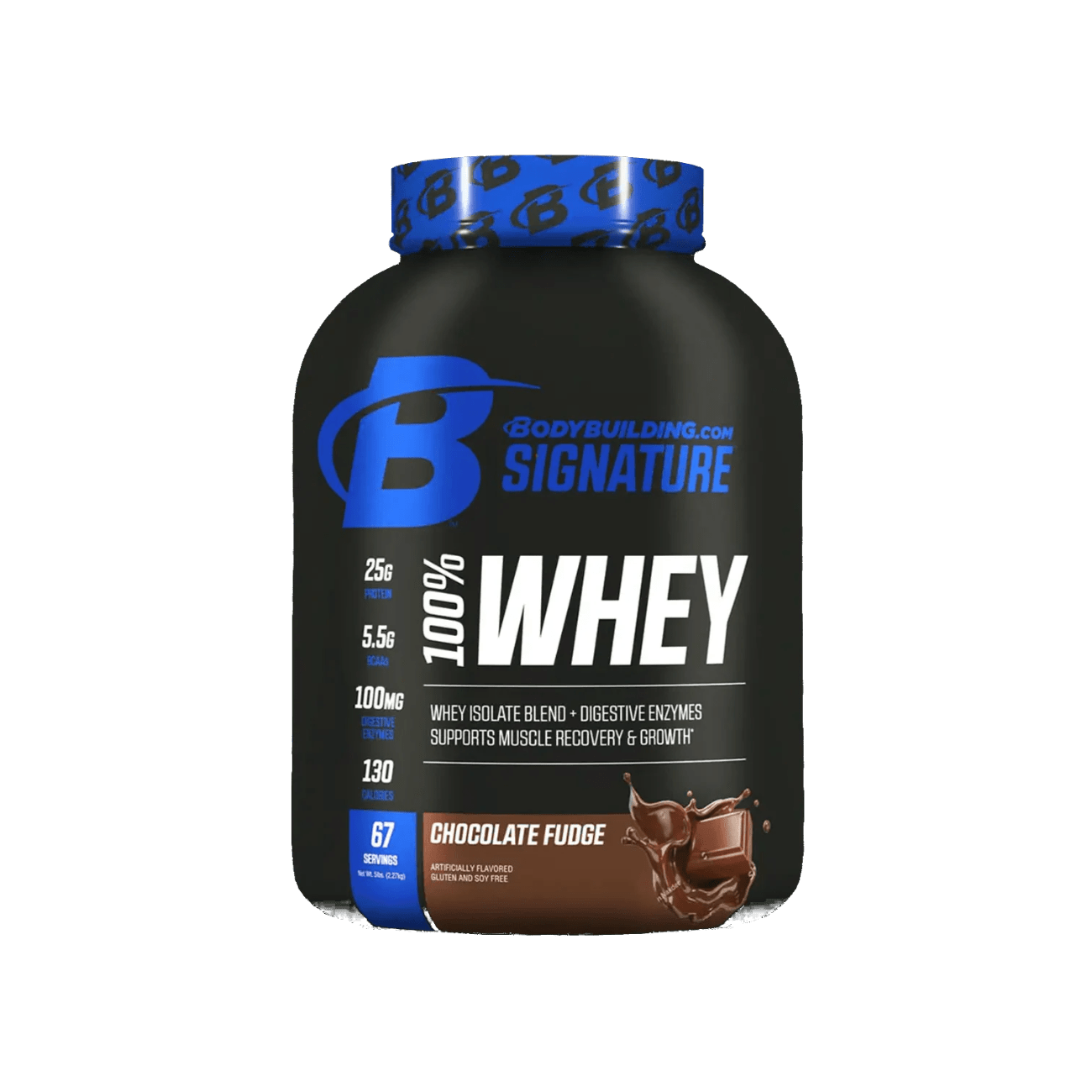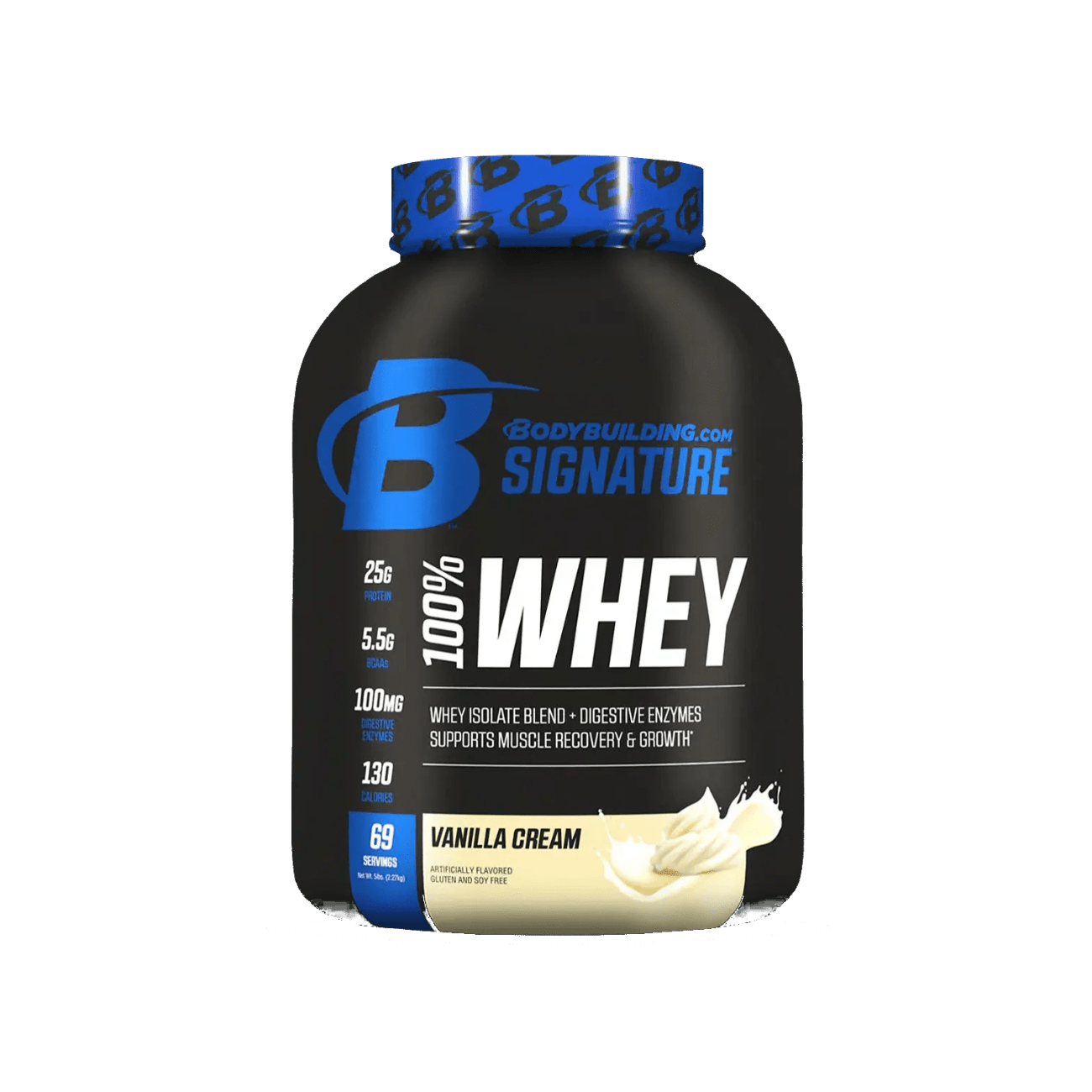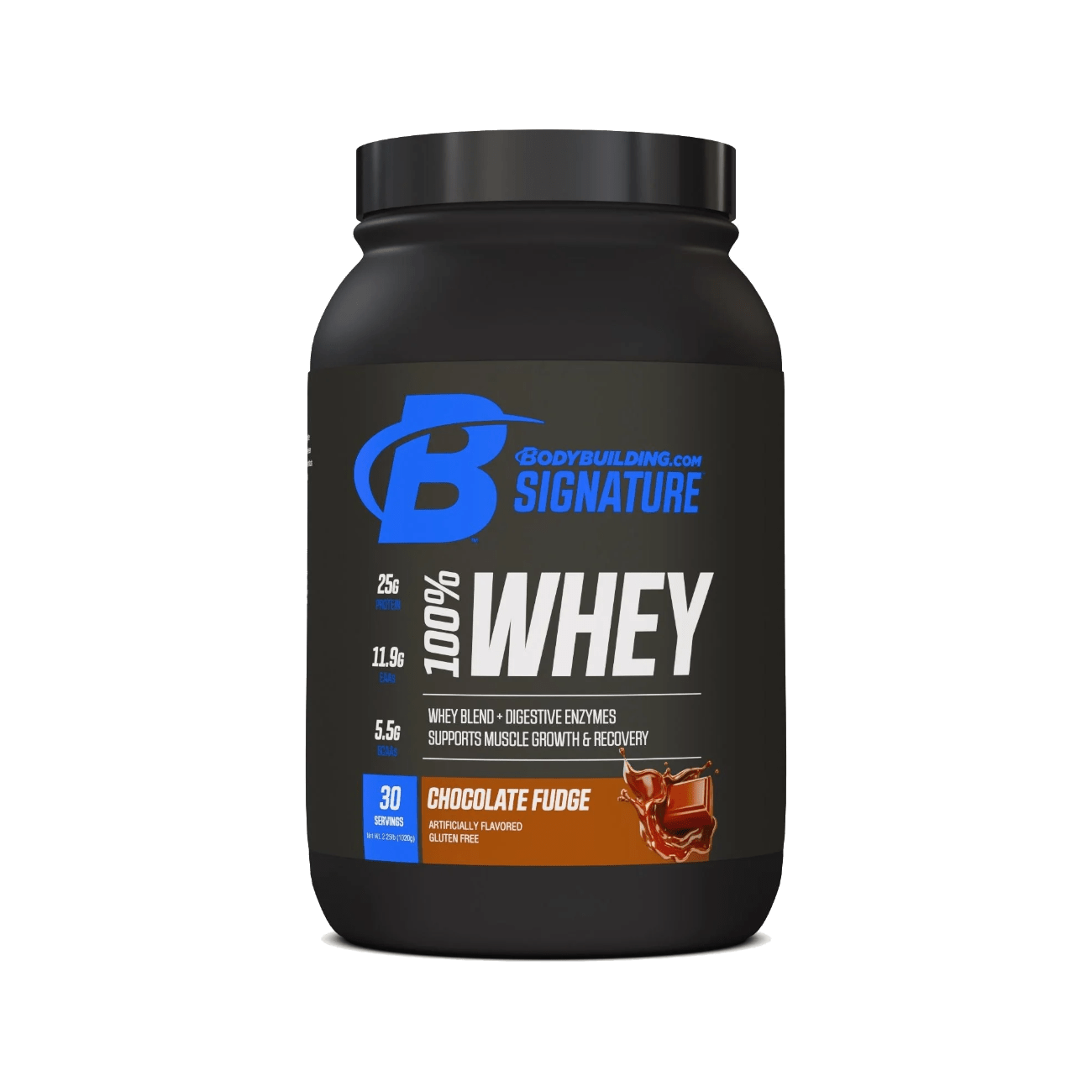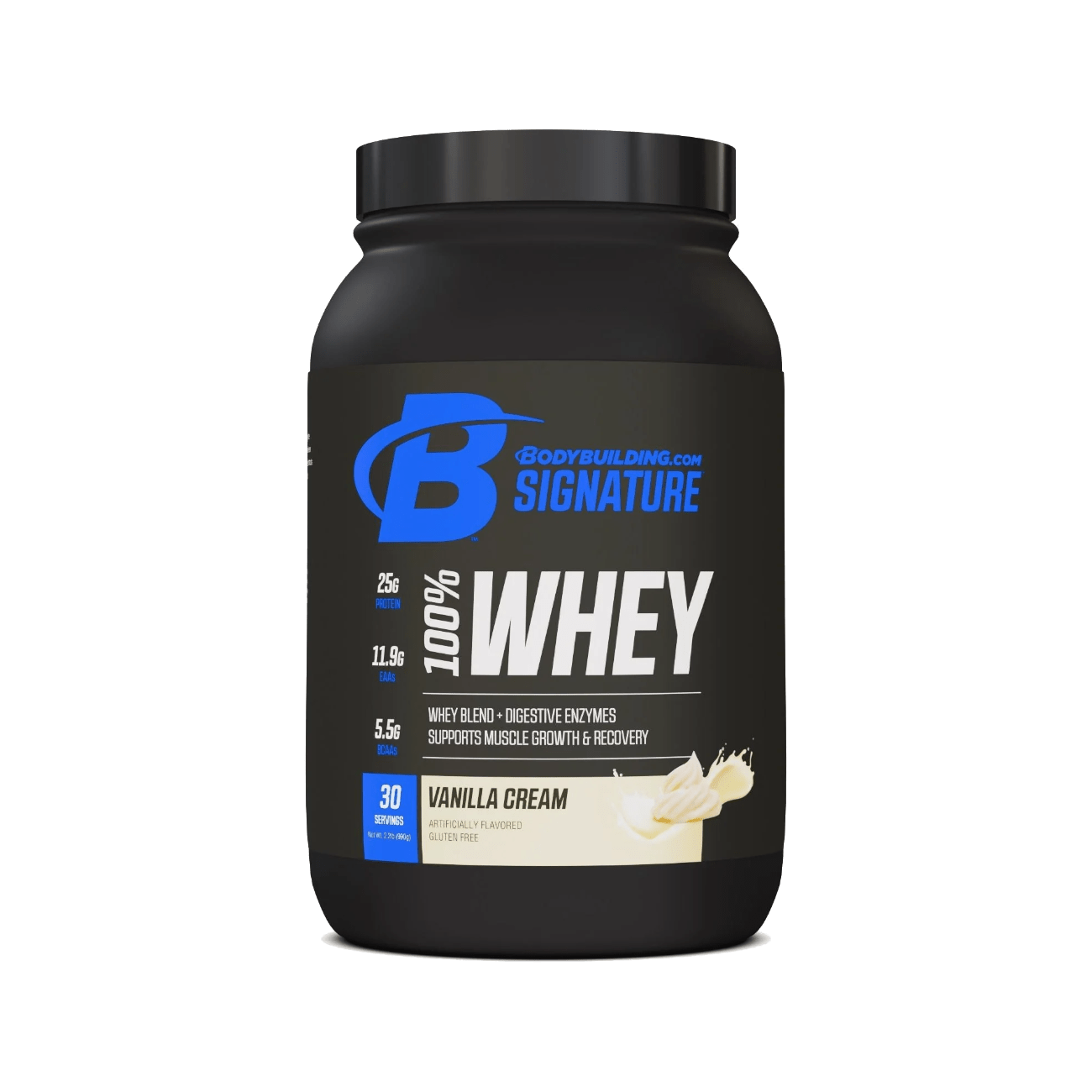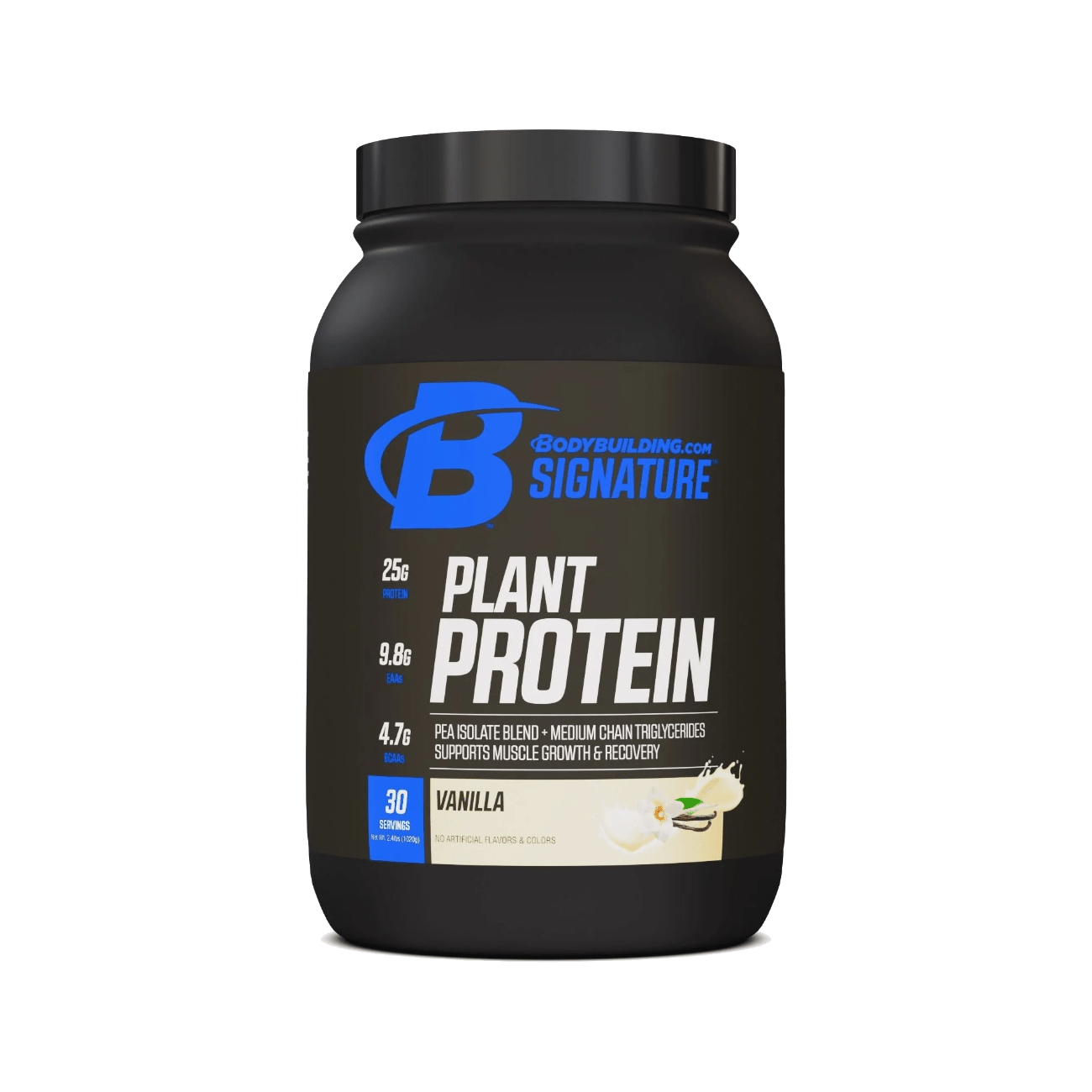Jim Stoppani, Ph.D.
August 27, 2021 • 6 min read
When taken correctly, L-carnitine can boost both your training and your physique. In the gym, it can mean more endurance and bigger pumps. In the mirror, picture more muscle and less fat. And despite what you may have read, it's safe.
Don't fear L-carnitine. Learn how it works and how to use it, and it can be a great tool to have in your arsenal.
What is L-carnitine?
While it is often categorized as an amino acid, L-carnitine isn't technically an amino. It is considered a "vitamin-like" and "amino-acid-like" compound that is related to the B vitamins. When it was first studied back in the 1950s, L-carnitine was referred to as vitamin BT.
L-carnitine is formed in the liver and kidneys from the amino acids lysine and methionine. However, it is stored elsewhere in the body, primarily in muscle (including the heart), the brain, and even in sperm. In the diet, it mainly comes from meat and other animal products. You can get some from plant products like avocado and soybeans, but as a rule, meat is the best source—and the redder the better.
Carnitine exists in two forms: D-carnitine and L-carnitine. The L-form is the kind of carnitine found in nature and is biologically active. On labels, you'll see it listed as L-carnitine, L-carnitine L-tartrate, or Propionyl-L-carnitine. They're all similar, and similarly effective. The D form of carnitine, on the other hand, is biologically inactive and isn't sold as a supplement.
Acetyl L-carnitine, also known as acetylcarnitine or ALCAR, is another popular supplemental form of carnitine. It can be found throughout the central nervous system, where it plays a role in producing energy and produces the important neurotransmitter acetylcholine.
The acetyl group attached to the carnitine molecule enhances its ability to pass across the blood-brain barrier and enter the brain, where it acts as a powerful antioxidant. For this reason, some research suggests that acetyl L-carnitine may provide protective actions against aging processes and neurodegeneration.
What does L-Carntine do?
L-carnitine helps to transport fat, particularly long-chain fatty acids, into the mitochondria of cells. Once there, the fatty acids can be oxidized—used as fuel—to generate adenosine triphosphate, or ATP. L-carnitine does this cellular work both when you exercise and rest, but research confirms that it is especially effective during intense exercise.
Without adequate carnitine, most dietary fats can't get into the mitochondria and be burned for fuel. But for people with carnitine deficiency, it is a serious medical condition. It can lead to muscle weakness, stunted growth, an enlarged liver, and a number of other problems. This is one reason it's considered a "conditionally essential" nutrient: Your body produces it, but if it doesn't produce enough, your health can be seriously impacted.
A study out of Scotland concluded that in addition to its fat-transporting work, L-carnitine also enhances insulin's actions on muscle cells.[1] What this means is that it can help keep blood glucose levels low, even after a carb-rich meal, while also aiding glycogen repletion. This is one reason I advocate taking this supplement with a post-workout meal.
Some of the most interesting research into L-carnitine supplementation focuses on how it can enhance athletic performance.
What are the Performance and Physique Applications Of L-Carnitine?
L-carnitine's bona fide role as a fat-burning supplement is well established. During bulking periods, it can help limit fat gains and make a "cleaner" bulk. If you're cutting, it can help transport the fat you have into your cellular furnaces to get burned as energy.
Burning fat as fuel: Some of the most interesting recent research into L-carnitine supplementation focuses on how it can enhance athletic performance. In one study, University of Nottingham Medical School researchers had one group of athletes consume 2 grams of L-carnitine along with 80 grams of a high-glycemic carb first thing in the morning and four hours later for 24 weeks. Another group only took the carbs.[2]
The researchers found that during low-intensity cycling, the subjects taking carnitine burned 55 percent less muscle glycogen while increasing the body's ability to burn fat by 55 percent. During high-intensity cycling, the subjects taking L-carnitine had lower levels of lactic acid and higher levels of creatine phosphate, one of the primary building blocks of ATP.
Fatigue resistance: When the Nottingham researchers measured the subjects' ability to resist fatigue during a cycling test, they found that subjects taking the supplement were able to go more than 25 percent longer. This was likely because they burned more fat while preserving muscle glycogen, in addition to having lower levels of lactic acid and higher levels of creatine phosphate.
Decreased Muscle Soreness, Improved Recovery: In a number of studies on human subjects, L-carnitine doses of just 1-2 grams per day have been shown to significantly reduce muscle damage from strenuous exercise, and improved recovery to exercise.[3-6] It has also been shown to decrease muscle soreness. The best part? It wasn't rats doing these workouts. It was healthy, active men and women.
Better blood flow and pumps: This supplement's performance benefits not only stem from its ability to increase fat burning and decrease glycogen use, but also from the way it can enhance blood flow to the muscles.[7] Increased blood flow means more nutrients and hormones go where they're needed most during exercise.
How does this work? For one, carnitine reduces oxidative damage in the body's nitric oxide (NO). But it also enhances the activity of a key enzyme involved in your body's NO production. The net result is higher NO blood levels, which not only enhance energy during workouts, but also muscle recovery following workouts.
Are There Side Effects to L-Carnitine Supplementation?
There are few negative side effects from this supplement at reasonable doses. It can cause nausea, abdominal cramps, vomiting, and diarrhea when taken in high doses. Rare side effects can include muscle weakness in uremic patients and seizures in people with seizure disorders.
How Should I Stack L-Carnitine?
Quite simply, take it with carbs. Some early studies showed no benefit of carnitine because they failed to adequately raise muscle carnitine levels. This was because the supplement wasn't taken at the right time, when insulin would be spiked and muscle uptake would be adequate.
Newer research shows that insulin levels must be quite high for adequate amounts of L-carnitine to enter muscle cells, where it performs the majority of its work.[8] On the flipside, taking L-carnitine enhances insulin's actions at the muscle cells, helping to deliver more glucose into the muscle cells as well as more L-carnitine.
While as little as 1 gram of L-carnitine can be effective, your best bet is to take 2-3 grams per dose for maximum benefit, along with at least 30-40 grams of carbs and 20-40 grams of protein, preferably with a meal. This applies if you take straight-up L-carnitine, L-carnitine L-tartrate, or propionyl-L-carnitine.
Acetyl L-carnitine, however, is more easily taken up by the intestines and the muscle cells, not to mention the brain, in the absence of food. Therefore, this form of carnitine may be stacked with other ingredients that enhance fat-burning, such as caffeine and green tea, and taken between meals.
Should I Cycle L-Carnitine?
At this time, it appears that there is no need to cycle L-carnitine. Taken regularly, it should continue to be effective long term.
When Should I Take L-Carnitine?
One of the best times to take L-carnitine is post-workout, but you can take it with any other high-carb, high-protein meal throughout the day. If you want to stack carnitine with other fat-burning ingredients between meals, consider using the acetyl L-carnitine form.
One strategy I found to work well for both fat loss and performance is to take 2-3 doses of acetyl L-carnitine with other fat-burning ingredients without food between meals, and to take 1 dose of L-carnitine or L-carnitine L-tartrate with a post-workout meal.
You can take it with any other high-carb, high-protein meal throughout the day.
References
- Galloway, S. D., Craig, T. P., & Cleland, S. J. (2011). Effects of oral L-carnitine supplementation on insulin sensitivity indices in response to glucose feeding in lean and overweight/obese males. Amino Acids, 41(2), 507-515.
- Wall, B. T., Stephens, F. B., Constantin‐Teodosiu, D., Marimuthu, K., Macdonald, I. A., & Greenhaff, P. L. (2011). Chronic oral ingestion of l‐carnitine and carbohydrate increases muscle carnitine content and alters muscle fuel metabolism during exercise in humans. The Journal of Physiology, 589(4), 963-973.
- Ho, J. Y., Kraemer, W. J., Volek, J. S., Fragala, M. S., Thomas, G. A., Dunn-Lewis, C., ... & Maresh, C. M. (2010). l-Carnitine l-tartrate supplementation favorably affects biochemical markers of recovery from physical exertion in middle-aged men and women. Metabolism, 59(8), 1190-1199.
- Volek, J. S., Kraemer, W. J., Rubin, M. R., Gómez, A. L., Ratamess, N. A., & Gaynor, P. (2002). L-Carnitine L-tartrate supplementation favorably affects markers of recovery from exercise stress. American Journal of Physiology-Endocrinology and Metabolism, 282(2), E474-E482.
- Kraemer, W. J., Volek, J. S., French, D. N., Rubin, M. R., Sharman, M. J., Gómez, A. L., ... & Hakkinen, K. (2003). The effects of L-carnitine L-tartrate supplementation on hormonal responses to resistance exercise and recovery. The Journal of Strength & Conditioning Research, 17(3), 455-462.
- Spiering, B. A., Kraemer, W. J., Vingren, J. L., & Hatfield, D. L. (2007). Responses of criterion variables to different supplemental doses of L-carnitine L-tartrate. Journal of Strength and Conditioning Research, 21(1), 259.
- Atalay, G. N., Erikoglu, O. G., Sezen, B. F., & Coskun, C. S. (2015). Effects of acute L-carnitine supplementation on nitric oxide production and oxidative stress after exhaustive exercise in young soccer players. The Journal of Sports Medicine and Physical Fitness, 55(1-2), 9-15.
- Stephens, F. B., Constantin-Teodosiu, D., Laithwaite, D., Simpson, E. J., & Greenhaff, P. L. (2006). Insulin stimulates L-carnitine accumulation in human skeletal muscle. The FASEB Journal, 20(2), 377-379.








